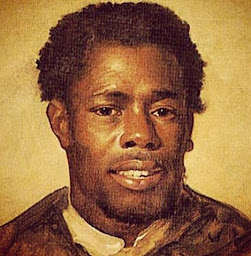John Brown
John Brown was born in Torrington, Connecticut, in 1800. He was raised in a town where there was a lot of antislavery movement. His family really emphasized religion, so his faith was a big part of his life. He didn't go to school because he worked with his father as a tanner. His father was also an abolitionist, and he worked on the Underground Railroad. So from early on, Brown was learning how bad slavery was. But his hatred toward slavery really increased when he saw a boy his age being beat for punishment. Later on, Brown went to college to be a priest.
After he finished school, he made a tannery of his own in Ohio. In total, he had 20 children between two wives. In 1826 he moved to Pennsylvania but didn't stay because his business was doing well back in Ohio. After a few years, Brown started working with abolitionist to get rid of slavery. He helped runaway slaves get through the Underground Railroad.
In 1837 Elijah P Lovejoy, a journalist, was killed by a proslavery group because he published articles about antislavery. After Brown heard this, he thought that the only way to eliminate slavery was by violence. Before, Brown was a pacifist, but then he became a zealot. When he decided this, he thought he was doing the right thing and was following God's word.
Brown protested for the freedom and equality of blacks. He wrote an essay that said African Americans shouldn't have let white people treat them like that; they should have resisted. He moved to New York and worked with Gerrit Smith, a fellow abolition and Brown taught African Americans farming. Later in 1851, he moved back to Ohio to farm, but it didn't work out the best for his financial situation. Years later, he gathered free blacks to help runaway slaves.
When he went back to Kansas in 1857, both sides had found a peaceful agreement. After this, he started gathering men so that he could invade the South and free slaves. In conclusion, Brown was religious, so he thought God had picked him to "lead" this "holy" war against slavery. Six other men found out about his revolt, and they decided to help Brown by giving him guns and money. Brown gave speeches in New England informing people about his invasion so that he could raise money. In 1858 Brown met all of his supporters and laid down the plan to instigate an enormous slave rebellion in the south. He could start up raids against proslavery people and free slaves. He was named Commander in Chief at the meeting, and they set up a constitution for the state.
After Brown came back from his meeting in Canada, he got the name Shubel Morgan. Then in 1858, he lead a raid in Missouri where he freed 11 slaves and killed a plantation owner. With the assistance of other antislavery groups, he could get the slaves to Canada without being harmed.
On October 16,1859, Brown led a group of black and white males to the U.S. Arsenal at Harpers Ferry. They took townspeople hostage, cut off communication wires, and were able to seize the arsenal. Later the local militia came down to get him, but he hid in an engine house. After that, the US Marines arrived and were able to capture him.
Even though I don't agree with some of his violent ways, I will say it was brave of him to take charge and create more attention to abolish slavery. The federal army was not weak. To be able to have the courage to up against them for a black people's freedom is bold. Risking your life for a black person in the 1800s is challenging.
Citations
Website: History.com John Brown - Raid on Harpers Ferry & Abolitionist - HISTORY November 27th, 2019 Author: History.com editors
Website: John Brown | Biography, Harpers Ferry, & Pottawatomie Massacre | Britannica https://www.britannica.com/editor/The-Editors-of-Encyclopaedia-Britannica/4419
2021
Website: John Brown (pbs.org) www. pbs.org Author: PBS editors







Comments
Post a Comment